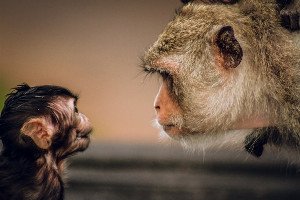Muallimatunnisa Muallimatunnisa, Ismail Ismail, Andi Irma Suryani
Pengaruh Metode Pembelajaran Berbasis Masalah Terhadap Hasil Belajar pada Materi Keanekaragaman Hayati di Kelas X IPA SMAN 3 Sinjai
Introduction
Pengaruh metode pembelajaran berbasis masalah terhadap hasil belajar pada materi keanekaragaman hayati di kelas x ipa sman 3 sinjai. Teliti pengaruh metode pembelajaran berbasis masalah (PBL) terhadap hasil belajar siswa materi keanekaragaman hayati di kelas X SMAN 3 Sinjai. Studi kuasi-eksperimental ini menunjukkan peningkatan signifikan.
Abstract
The current study is a quasi-experimental study to determine the effect of the PBL model on student learning outcomes in the subject of biodiversity. The number of samples in this study were 162 students from class X which consisted of five classes. Class X3 as the experimental class and X4 as the control class with 33 students. Posttest results were then evaluated using descriptive statistical methods and inferential methods to produce the data collected. The results of the descriptive analysis showed a posttest score of 77.88 for the experimental class and 68.33 for the control class. In, inferential, analysis, statistics, prerequisites, tests, and hypotheses, tests are carried out. Based on the Prerequisite Test, it is known that the data is normally distributed and the population is homogeneous. It can be said that there is an effect of problem-based learning on learning outcomes on biodiversity material in class X, SMAN 3, and Sinjai.
Review
This study investigated the effectiveness of Problem-Based Learning (PBL) on student learning outcomes in biodiversity material among tenth-grade students at SMAN 3 Sinjai. Employing a quasi-experimental design, the researchers compared an experimental class taught using PBL with a control class. The primary finding suggests a notable positive impact, with the experimental group achieving a higher average posttest score (77.88) compared to the control group (68.33). This result supports the notion that active learning strategies like PBL can be more effective than conventional methods in enhancing student comprehension and performance in science subjects. While the study offers valuable insights into the application of PBL in a specific educational context, several methodological aspects could benefit from further elaboration. The abstract states a total sample of 162 students from five classes, yet only two classes (X3 and X4, each with 33 students) were designated as experimental and control groups. This raises questions regarding the selection process for these specific classes and whether their initial equivalence was sufficiently established beyond the general claim of population homogeneity. The absence of a pre-test is also a significant limitation, as it makes it difficult to definitively attribute all observed differences in posttest scores solely to the PBL intervention, rather than potential pre-existing differences between the groups, even if statistical tests indicated normality and homogeneity of the population. The findings contribute to the ongoing discussion about effective pedagogical approaches in science education, providing practical evidence for the benefits of PBL in improving learning outcomes for biodiversity. To enhance the robustness and interpretability of future research, it is recommended to include pre-test scores to more rigorously establish baseline equivalence between groups. Additionally, greater detail regarding the specific activities and duration of the PBL intervention, the characteristics of the biodiversity material covered, and the psychometric properties of the posttest instrument would allow for better replication and a deeper understanding of the study's implications. Exploring qualitative data on student engagement or perceptions of PBL could also provide a richer understanding of the observed effects.
Full Text
You need to be logged in to view the full text and Download file of this article - Pengaruh Metode Pembelajaran Berbasis Masalah Terhadap Hasil Belajar pada Materi Keanekaragaman Hayati di Kelas X IPA SMAN 3 Sinjai from BIOPROSPEK: Jurnal Ilmiah Biologi .
Login to View Full Text And DownloadComments
You need to be logged in to post a comment.
Top Blogs by Rating
Unveiling the Hidden Journeys:...
By Sciaria
Whispers from the Walls: Unloc...
By Sciaria
Unlocking Life's Source Code:...
By Sciaria
Favorite Blog
Beyond the Charts: Unlocking S...
By Sciaria
The Spiritual Shelf Life: Navi...
By Sciaria
The Ageless Enigma: What Biolo...
By Sciaria
Related Research
Dialogues about graphicons in digital communication: introduction to the special issue
Formation of disaster resilient villages (destana) for improvement community resilience to disaster in timpik village, semarang regency
Seismic response of the near surface quaternary deposits in an area between the venetian pre-alps and the lagoon of venice (northeastern italy)
Share
Notice Board
- ANALISIS PEMANFAATAN JURNAL ELEKTRONIK BIDANG TEKNIK SIPIL OLEH MAHASISWA PROGRAM STUDI PENDIDIKAN TEKNIK BANGUNAN UNIVERSITAS NEGERI SEMARANG SEBAGAI SUMBER BELAJAR MENGGUNAKAN TECHNOLOGY ACCEPTANCE MODEL (TAM)
- ANALISIS PENDAPATAN DAN BREAK EVEN POINT (BEP) USAHA SELADA FIQA HYDROFARM DESA POTOYA KABUPATEN SIGI SETELAH BERMITRA DENGAN PT NINA AGRO JAYA
- NEWSLETTER





